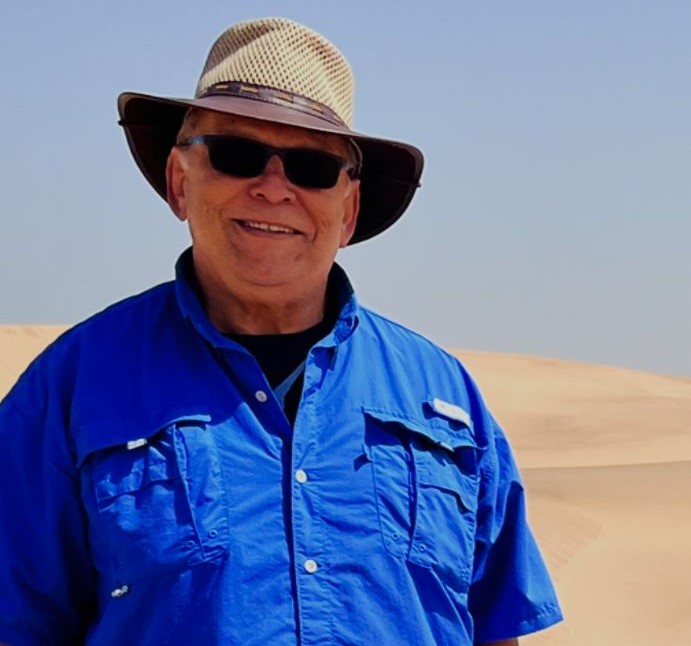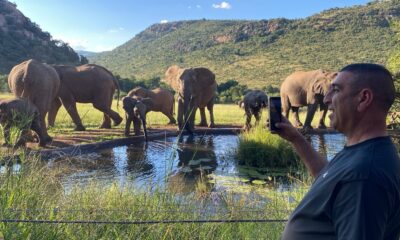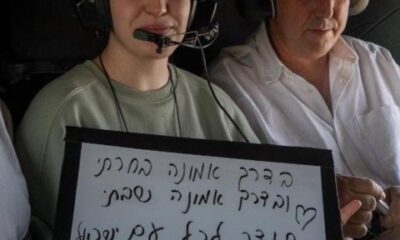
Personal Story

Hell on wheels: Kfar Aza family plans next steps
South African-born Ralph Lewinsohn, his wife, Barbara, and their family survived the hell that befell their beloved home on Kfar Aza on 7 October 2023, when it was attacked by Hamas terrorists, killing 10% of the kibbutz’s inhabitants and destroying everything they had.
Eight months on, he writes of this earth shattering experience:
We’ve gone through several phases since then, the first being the most basic instinct of any human, the need to survive, stay alive, protect the family, have a roof over our heads, and take care of basic needs.
The next was to attempt to deal with the new reality – the loss of so many friends, children of friends, friends of my children, and grandchildren. Then to deal with having to abandon our homes and the tight-knit community we lived in.
Now, we’re attempting to plan some sort of future, which will begin in November, when we’ll move from our temporary accommodation in Ra’anana to a trailer park adjoining Kibbutz Ruhama in the south. We intend to be housed there for the next year or two until the conditions for going back to the rebuilt kibbutz have been met. The move will also enable the children to go back to school, which will reopen, and those who worked in the area to go back to their jobs, if they still exist. The idea is to try and start rebuilding the community and the support network it had.
My rough guess is that about 50% of the community will move there, with the intention of returning home to the kibbutz afterwards. There are others who don’t want to return, who are split within the family, too scared to go back, and others who cannot contemplate having to rebuild at the age of 70 to 80, and have moved to assisted living. One of the most important factors in the decision whether or not to return will be the level of security that exists so that such a massacre cannot occur again. There was always an unwritten covenant between the state and those living on the border that we would live there and the army would look after our security.
That covenant has been destroyed. Then there are those who cannot live in a place where friends and family were murdered next door, or where every corner will be a reminder of the terrible events that happened there.
It was meant to be a stage of our lives, at 72, when we were planning our retirement, enjoying our kibbutz home, and nearby family. Instead, we’re having to deal with so much trauma, mourning, and rebuilding. Even the assumption that your home is an asset which can be sold and you can move elsewhere and settle down is no longer valid. Our homes won’t be marketable for many years because there will be 50 to 100 homes available from the murdered families and those not returning.
The decision to go about our daily lives also raises the question of dissonance. Are we really allowed to do the things we enjoy when there are still 100 hostages in hell, sometimes just three to four kilometres from our homes on the kibbutz? Why did we survive when our neighbours and friends were brutally murdered? How can we look friends in the eye when we are with our children and grandchildren and theirs are dead?
Our kibbutz management team is negotiating with the government about the funds that will be allocated for rebuilding destroyed infrastructure and houses, buildings, and facilities. There won’t be enough to cover everything, especially private houses that were totally destroyed, including the lifelong possessions in them.
Rebuilding the houses hasn’t started, as in many cases, there are heirs involved who have to agree how to proceed. Houses that were damaged and can be repaired have slowly been emptied of all remaining reusable items which have been put in storage so that the process of repair can take place.
I stay on the kibbutz one or two nights a week, giving tours to foreign groups who want to see what happened, a reality that cannot be fully understood without seeing the facts on the ground. Many of the visitors leave in shock, crying, because what they see is beyond their worst imagination, while still hearing the sounds of war, explosions, and machine-gun fire in the background from nearby Jebalia, Zeitun, Bet Lahiah, and Beit Hanoun in Gaza, just more than 2km away.
The whole of Israel is in mourning. We don’t know what the future holds for us, but one light that shines through the darkness is that we have friends around the world who support and care about us.










